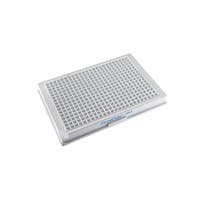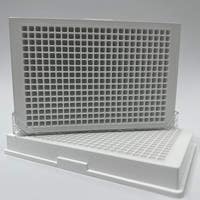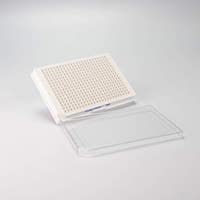
AlphaLISA Biotin-Free TGF-β1 Detection Kit, 5,000 Assay Points
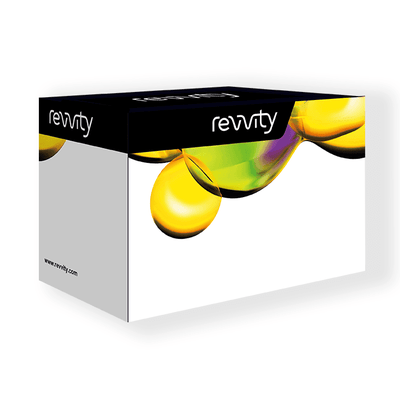
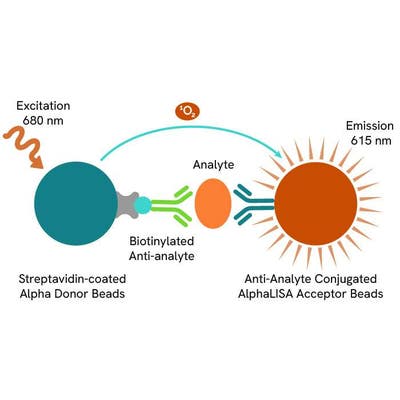
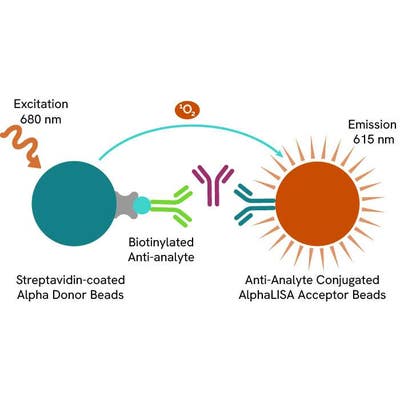 View All
View All
AlphaLISA Biotin-Free TGF-β1 Detection Kit, 5,000 Assay Points
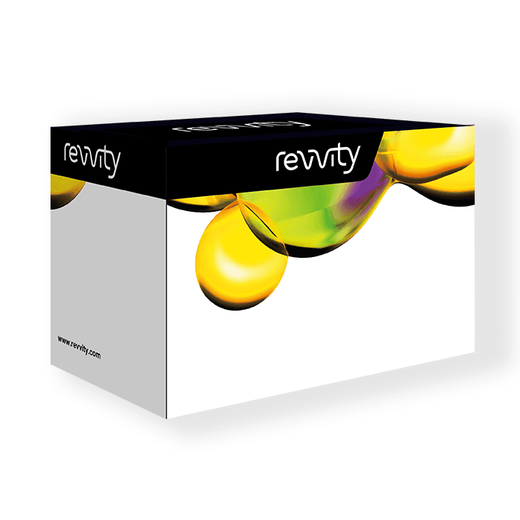
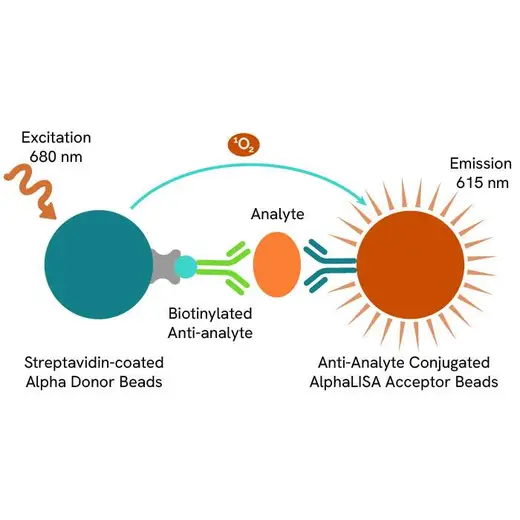
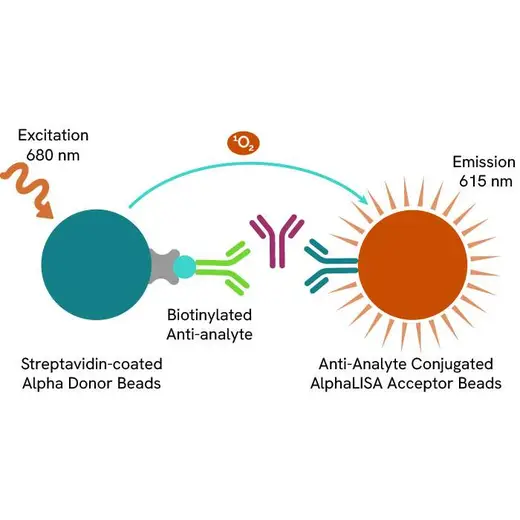




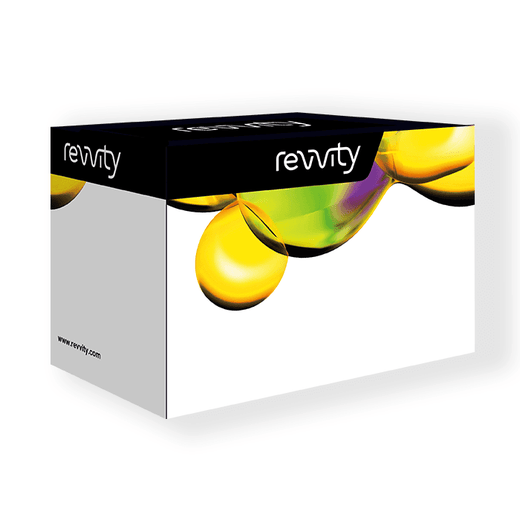
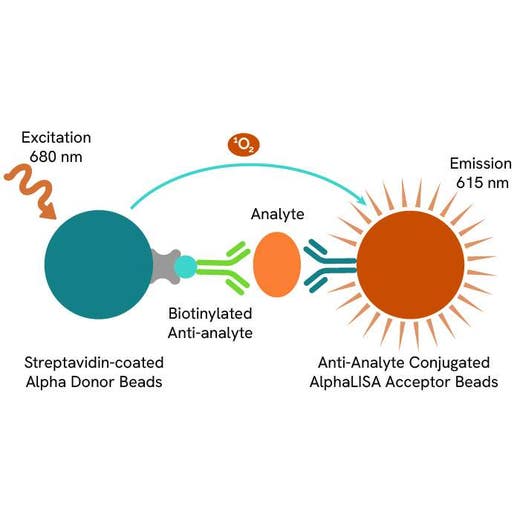
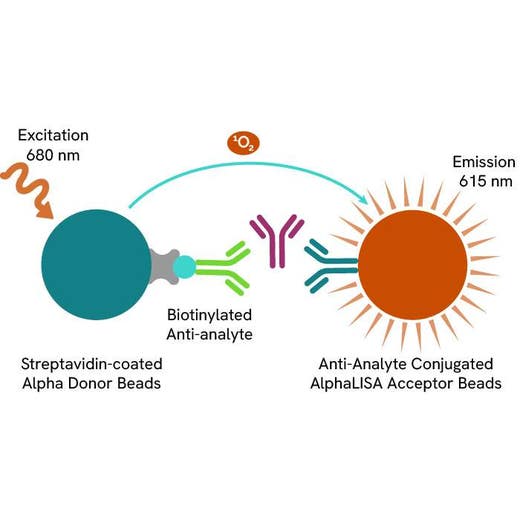




The AlphaLISA™ Human TGF-β1 Biotin-Free Detection Kit is designed for the quantitative detection of human TGF-β1 in serum, cell culture medium, and other samples types using a homogeneous (no wash steps, no separation steps) assay. The biotin-free kit is compatible with high-biotin culture media and other sample types that contain high levels biotin.
For research use only. Not for use in diagnostic procedures. All products to be used in accordance with applicable laws and regulations including without limitation, consumption and disposal requirements under European REACH regulations (EC 1907/2006).
| Feature | Specification |
|---|---|
| Application | Protein Quantification |
| Dynamic Range | 9.2 - 300,000 pg/mL |
| Limit of Detection | 9.2 pg/mL |
| Limit of Quantification | 28.9 pg/mL |
| Sample Volume | 5 µL |
The AlphaLISA™ Human TGF-β1 Biotin-Free Detection Kit is designed for the quantitative detection of human TGF-β1 in serum, cell culture medium, and other samples types using a homogeneous (no wash steps, no separation steps) assay. The biotin-free kit is compatible with high-biotin culture media and other sample types that contain high levels biotin.
For research use only. Not for use in diagnostic procedures. All products to be used in accordance with applicable laws and regulations including without limitation, consumption and disposal requirements under European REACH regulations (EC 1907/2006).







AlphaLISA Biotin-Free TGF-β1 Detection Kit, 5,000 Assay Points







AlphaLISA Biotin-Free TGF-β1 Detection Kit, 5,000 Assay Points







Product information
Overview
The biotin-free kit uses anti-DIG (anti-Digoxin) Donor beads instead of streptavidin Donor beads, which makes the kit compatible with high-biotin culture media and other sample types that contain high levels biotin (including brain/liver tissue extracts, milk and eggs).
Features:
- No-wash steps, no separation steps
- Compatible with high biotin samples, including RPMI and high-biotin tissue extracts
- ELISA alternative technology
- Sensitive detection
- Broad sample compatibility
- Results in less than 3 hours
Formats:
- Our HV (100 assay point) kits allow you to run 100 wells in 96-well format, using a 100 µL reaction volume (10 µL of sample).
- Our 500 assay point kit allows you to run 500 wells in 96-well or 384-well format, using a 50 µL reaction volume (5 µL of sample).
- Our 5,000 assay point kit allows you to run 5,000 wells in 96-well or 384-well format, using a 50 µL reaction volume (5 µL of sample).
Transforming growth factor beta 1 or TGF-β1, part of the TGF β cytokine superfamily, is a 25 kD disulfide-linked homodimer. TGF-β1 is produced by many cell types including immune cells and controls cell growth, proliferation, differentiation, and apoptosis by modulating many other cytokines and cytokine receptors. Serum and urine concentrations of TGF β1 are a useful marker for determining the status of patients with diabetic nephropathy in type II.
AlphaLISA technology allows the detection of molecules of interest in a no-wash, highly sensitive, quantitative assay. In an AlphaLISA biotin-free assay, a DIG-labeled anti-analyte antibody binds to the anti-DIG-coated Donor beads while another anti-analyte antibody is conjugated to AlphaLISA Acceptor beads. In the presence of the analyte, the beads come into close proximity. The excitation of the Donor beads causes the release of singlet oxygen molecules that triggers a cascade of energy transfer in the Acceptor beads, resulting in a sharp peak of light emission at 615 nm.
Specifications
| Application |
Protein Quantification
|
|---|---|
| Automation Compatible |
Yes
|
| Brand |
AlphaLISA
|
| Detection Modality |
Alpha
|
| Dynamic Range |
9.2 - 300,000 pg/mL
|
| Limit of Detection |
9.2 pg/mL
|
| Limit of Quantification |
28.9 pg/mL
|
| Product Group |
Kit
|
| Sample Volume |
5 µL
|
| Shipping Conditions |
Shipped in Blue Ice
|
| Target |
TGF-β1
|
| Target Class |
Cytokines
|
| Target Species |
Human
|
| Technology |
Alpha
|
| Therapeutic Area |
Oncology
|
| Unit Size |
5,000 Assay Points
|
Image gallery






AlphaLISA Biotin-Free TGF-β1 Detection Kit, 5,000 Assay Points






AlphaLISA Biotin-Free TGF-β1 Detection Kit, 5,000 Assay Points






Video gallery

AlphaLISA Biotin-Free TGF-β1 Detection Kit, 5,000 Assay Points

AlphaLISA Biotin-Free TGF-β1 Detection Kit, 5,000 Assay Points

Resources
Are you looking for resources, click on the resource type to explore further.
AlphaLISA™ technology is a highly sensitive, easy-to-use, and reproducible method for detecting and quantifying molecules in...
SDS, COAs, Manuals and more
Are you looking for technical documents related to the product? We have categorized them in dedicated sections below. Explore now.
-
LanguageEnglishCountryUnited StatesName
-
LanguageEnglishCountryEUName
-
Lot number3341737Lot dateOctober 9, 2024Name
-
Lot number3342987Lot dateOctober 9, 2024Name
-
Resource typeManualLanguageEnglishCountry-


How can we help you?
We are here to answer your questions.































